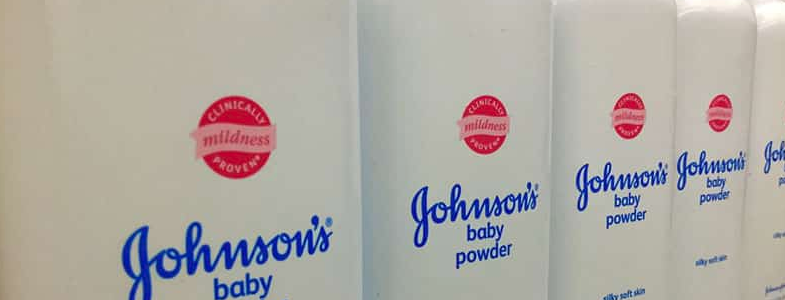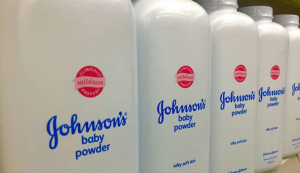
Johnson & Johnson to pay $4.7bn in talcum powder cancer case

A Jury in Missouri, USA has ordered Johnson & Johnson to pay $4.7bn to 22 women claiming that the company’s talcum powder caused them to develop ovarian cancer. Of the 22 women represented in this case, six have died from ovarian cancer already. Their lawyers alleged that the company knew its talc was contaminated with asbestos since the 1970s but failed to warn customers about the risks. Talc is a mineral and can sometimes be found in the ground in close proximity to asbestos. J&J however, denied that its products ever contained asbestos and insisted that they do not cause cancer.
The Pharmaceutical giant in its defence said several studies have shown its talc to be safe and said the verdict was a product of a “fundamentally unfair process”.
The US Food and Drug Administration (FDA) commissioned a study of a variety of talc samples, including J&J, from 2009 to 2010 but found not asbestos in any of them.
The prosecution lawyer told the Missouri court that the FDA and Johnson & Johnson had used flawed testing methods.
The powder contained the carcinogen asbestos, which was also found in ovarian tissues of many of the women.
The verdict comes as the pharmaceutical giant battles over 9,000 legal cases involving its signature baby talcum powder.
In the six-week trial, the women and their families said they developed ovarian cancer after using baby powder and other talc products for decades.
The mineral talc in its natural form does contain asbestos and does cause cancer, however, asbestos-free talc has been used in baby powder and other cosmetics since the 1970s. But the studies on asbestos-free talc give contradictory results. Ovarian cancer risk is affected by many different factors inherited and environmental ones – not just talc alone.
Punitive damages are often reduced by the trial judge or on appeal and J&J has succeeded in having several jury verdicts overturned, some of them on technical grounds.
